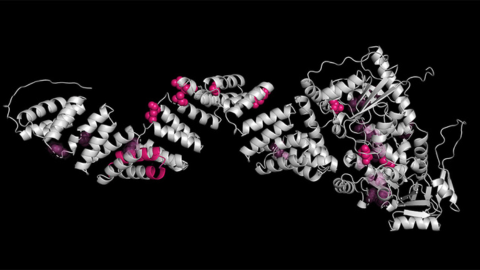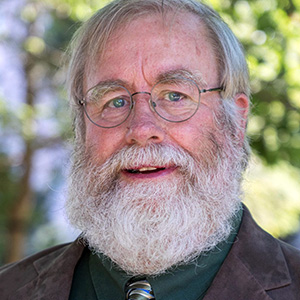Advice for new assistant professors
As someone who has observed many assistant professors over the years and lived to get tenure himself, I have observed certain patterns that appear to hold true for assistant professors who aspire to be tenured. When I became department head, I put together a list of these items to pass on to newly arrived faculty members. Although the list was generated with the environment and expectations of a research university in mind, most of these items also apply to new faculty members at primarily undergraduate institutions, medical schools, and so on.
Work with a sense of urgency.
Time is a nonrenewable resource, and the probationary period before submitting your promotion-and-tenure dossier will pass quickly.
Get to the bench!
It takes considerable time to recruit and train graduate students, technicians and postdoctoral fellows to the point at which they produce publication-quality results with some consistency. In the interim, the most experienced and skilled set of hands in your laboratory will belong to you, the principal investigator. Make time, especially during the first two to three years, to get to the bench and generate the data for a manuscript or two.
Be opportunistic.
Opportunities rarely come along at convenient times; or, to put it another way, it is the nature of passionate, self-motivated people perpetually to be overcommitted. Invitations to review papers and grants, to give talks or write reviews or chapters, to participate in site visits and the like represent golden opportunities to raise your visibility among your peers across the globe, to establish relationships with program officers and journal editors, and to document respect and recognition by the scientific community for your promotion-and-tenure committee. You also will find that reviewing manuscripts and grant applications will teach you more about writing and grantsmanship than attending a dozen workshops.
Attend conferences early and regularly.
Your attendance helps establish your new identity as an independent investigator in the eyes of your colleagues, helps you to keep current with developments and opportunities in your field, and may attract a seminar invitation or recruit a collaborator.
Treat staff with courtesy and respect.
You are all members of the same departmental team. Avoid crying wolf. Your procrastination does not constitute another person’s emergency.
Recruit self-motivated, responsible students.
Talent is of no value if a person does not possess the passion or work ethic for research. Do not underestimate the potential of a single irresponsible, disrespectful, intolerant or lazy individual to sap the morale and cohesion of your entire research group. Screen applicants carefully with respect to goals, motivation and expectations. Check references whenever possible. Have members of your group meet with prospective team members, and listen to their feedback.
Invite potential outside evaluators to be seminar speakers.
The opportunity to meet you, interact with your lab group and hear your ideas will enable potential external evaluators to write more informed and dynamic letters of evaluation than someone who is working from your curriculum vitae. These seminar visits also will provide your department head and tenure chairs a chance to assess the suitability of these potential evaluators.
Think of your research program as an investment portfolio.
If you put all your assets into one high-risk venture, you may reap great rewards, but you may also crash and burn. Develop a diversified portfolio. In addition to your main, bread-and-butter effort, establish a low-risk project (or two) that is likely to produce useful, if unspectacular, publications even during off years. Look for opportunities to spin off a methods paper in addition to a research manuscript. Talented undergraduates represent an excellent source of labor for carrying out low-risk projects as well as for exploring novel, high-risk ideas.
Be proactive.
Identify the service and teaching assignments you find most rewarding and seek them out. If you wait passively, you will end up with the leftovers. Getting your service credentials established early also leaves you with one less thing to worry about later in the tenure process. Saying yes now makes it much easier to say no somewhere down the line.
Define the issues.
When writing a paper or a grant application, anticipate and address likely questions or weak points.Simply ignoring them leaves you vulnerable to any misconception or confusion that arises in the reader. You want to define the issues rather than having them defined for you.
Think like a reviewer.
Focus on demonstrating proof of concept or expertise when amassing preliminary data for a grant application. An experienced reviewer will see the masses of routine, descriptive preliminary experiments for what they are.
Avoid arguing with reviewers.
The vast majority make constructive, good-faith efforts under difficult circumstances. Treat them with respect and adopt a gracious, constructive tone in your responses. Avoid scolding the reviewer for missing something already in the manuscript, for in the end, as the author, you are responsible for making critical points clear and noticeable. Think strategically when framing your response. Identify the critical area in which you need to convert the reviewer to your point of view – perhaps regarding the need for some additional experiment. Concede the small points and those points readily addressed by simple experiments. But remember Clausewitz: If you try to defend every little thing, you likely will prove completely unconvincing overall.
Think of your research program as an investment portfolio.
If you put all your assets into one high-risk venture, you may reap great rewards, but you also may crash and burn. Develop a diversified portfolio. In addition to your main, bread-and-butter effort, establish a low-risk project (or two) that is likely to produce useful, if unspectacular, publications particularly during off years. Look for opportunities to spin off a methods paper in addition to a research manuscript. Talented undergraduates represent an excellent source of labor for carrying out low-risk projects as well as for exploring novel, high-risk ideas.
Enjoy reading ASBMB Today?
Become a member to receive the print edition four times a year and the digital edition monthly.
Learn moreFeatured jobs
from the ASBMB career center
Get the latest from ASBMB Today
Enter your email address, and we’ll send you a weekly email with recent articles, interviews and more.
Latest in Careers
Careers highlights or most popular articles

Upcoming opportunities
Friendly reminder: May 12 is the early registration and oral abstract deadline for ASBMB's meeting on O-GlcNAcylation in health and disease.

Sketching, scribbling and scicomm
Graduate student Ari Paiz describes how her love of science and art blend to make her an effective science communicator.

Embrace your neurodivergence and flourish in college
This guide offers practical advice on setting yourself up for success — learn how to leverage campus resources, work with professors and embrace your strengths.

Upcoming opportunities
Apply for the ASBMB Interactive Mentoring Activities for Grantsmanship Enhancement grant writing workshop by April 15.

Quieting the static: Building inclusive STEM classrooms
Christin Monroe, an assistant professor of chemistry at Landmark College, offers practical tips to help educators make their classrooms more accessible to neurodivergent scientists.

Unraveling oncogenesis: What makes cancer tick?
Learn about the ASBMB 2025 symposium on oncogenic hubs: chromatin regulatory and transcriptional complexes in cancer.

